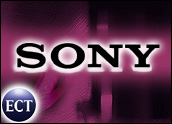
With the timeframe for its PlayStation 3 release already being questioned by some, Sony was dealt another setback this week when it lost a bid to appeal a ruling that it violated a smaller firm’s gaming patent.
Sony had hoped to be able to appeal the ruling that found it had infringed on the patent held by Immersion for technology included in the DualShock gaming controller.
The electronics maker was ordered to pay approximately US$91 million to Immersion and cease the sale of the controllers as well as PlayStation systems and games that use its “force feedback” feature.
Sony had sought an expedited appeal, saying that the testimony of one witness was abridged and that information not brought out during the trial phase could have helped Sony’s case.
U.S. District Judge Claudia Wilken, however, turned down Sony’s appeal and said the fact that Sony had acknowledged it had paid the witness, Craig Thorner, in consideration for future licensing of other patents he holds, made his testimony “unreliable.”
Sony said through a spokesperson that it would appeal the ruling to a higher court and said it was not in active settlement negotiations with Immersion.
Bad Timing
The second adverse ruling in about a week comes as Sony is preparing to brief analysts, game developers and others on its progress toward launching PS3 into the market. In a surprise to some observers, Sony said it would invite analysts and the media to attend what is usually a closed meeting with software developers.
The move may be aimed at quelling fears about delays in the progress on PS3. Last month, an analyst predicted some delays in widespread availability of the next-generation console, citing potential manufacturing problems that have made it difficult for Sony to produce the volume of chips its needs at the price point it wants.
Any delay could be costly, as Microsoft’s Xbox 360 is already available and Nintendo has its own multi-function console that should be ready for the market by later this year, known as the Revolution. The gaming boxes all have the ability to handle interactive online gaming, play DVDs and perform other functions.
Timing of console releases are seen as critical because they pave the way for stepped-up game creation by third party developers. The availability of must-have titles, in turn, drives more demand for the newer consoles. For that reason, most gaming device makers shoot to have their consoles already on the market well in advance of the fourth quarter holiday shopping season.
Game Wars and War Games
Those looking for details on the PS3 launch may be disappointed in Wednesday’s meeting, with some analysts saying that Sony would not want to let the air out of its own balloon by pre-releasing too much information.
Sony may want to do some damage control, however, as a way of assuring its fans who are waiting — some possibly delaying purchases of gaming devices — for its next product to hit shelves.
Many gamers carefully track release schedules, making purchase decisions not only on devices but also on gaming titles based on when the next big thing will be launched, said DFC Research President David Cole.
Some in the gaming community believe the PS3 will be a superior device to the Xbox, Cole said, and the additional functionality in the consoles is driving up the price. Most observers expect the PS3 to retail for around $500.
“The devices are changing and users are becoming more discriminating along the way,” Cole added.
Meanwhile, analysts will be watching the meeting with Sony for any signs of delays or changes in its Blu-ray DVD strategy. Sony has tried to propagate the Blu-ray standard as the next generation of DVD technology, only to have more major players back the HD DVD approach instead.
Enderle Group Principal Analyst Rob Enderle said while the standards race is important, the looming availability of high-definition video downloaded directly from the Internet takes some of the steam out of the DVD battle. “In the end, the consumer may have the choice to not have to decide,” he said.
























































Social Media
See all Social Media